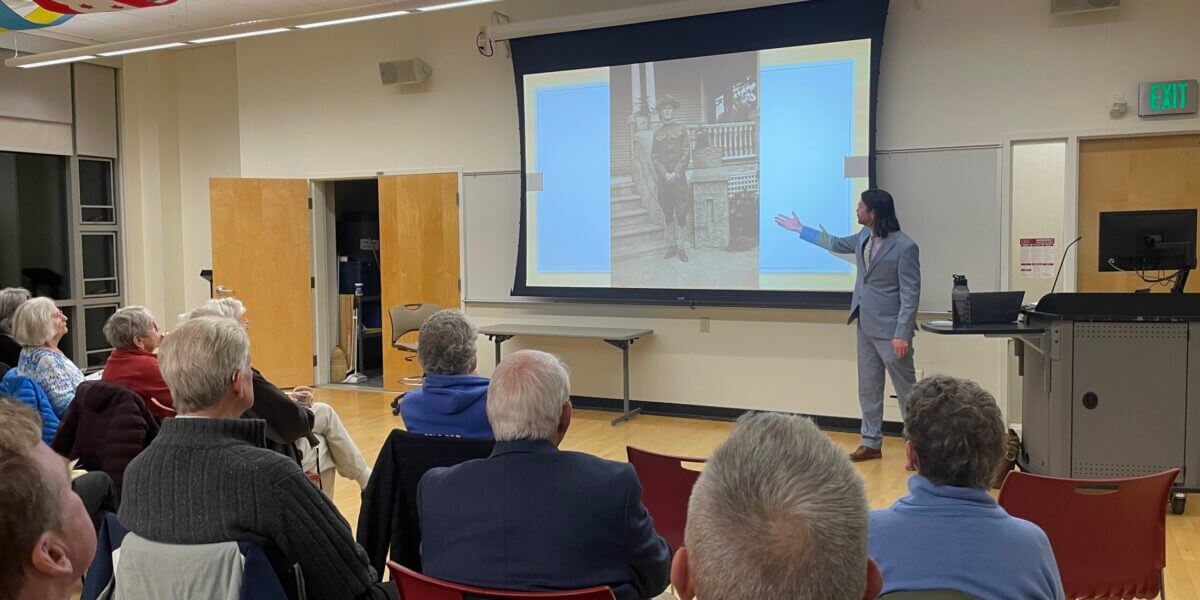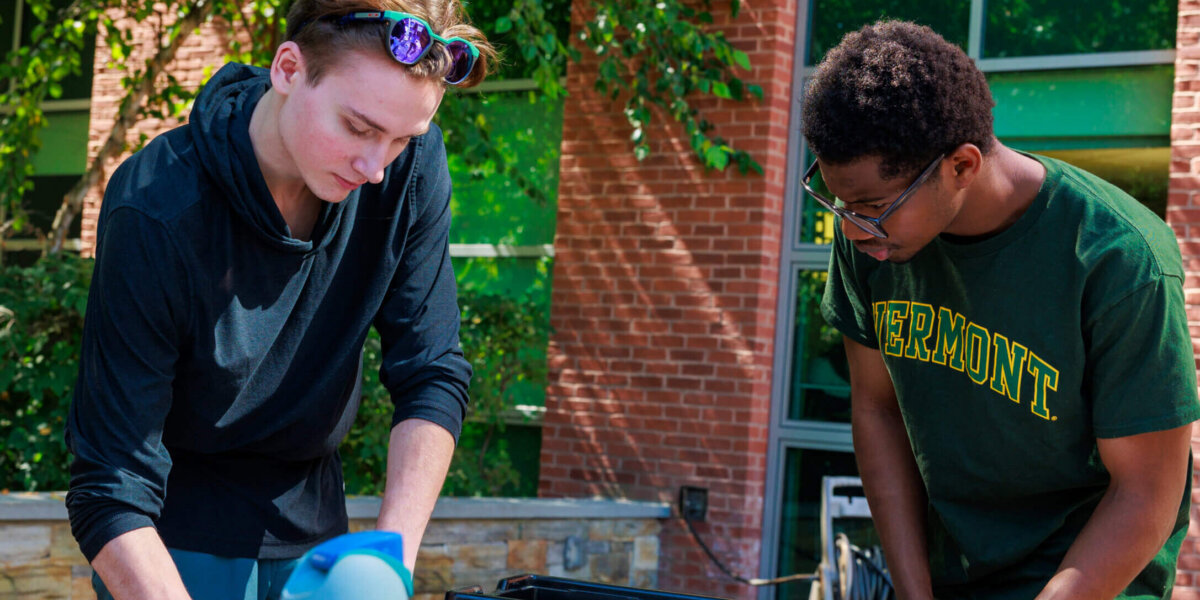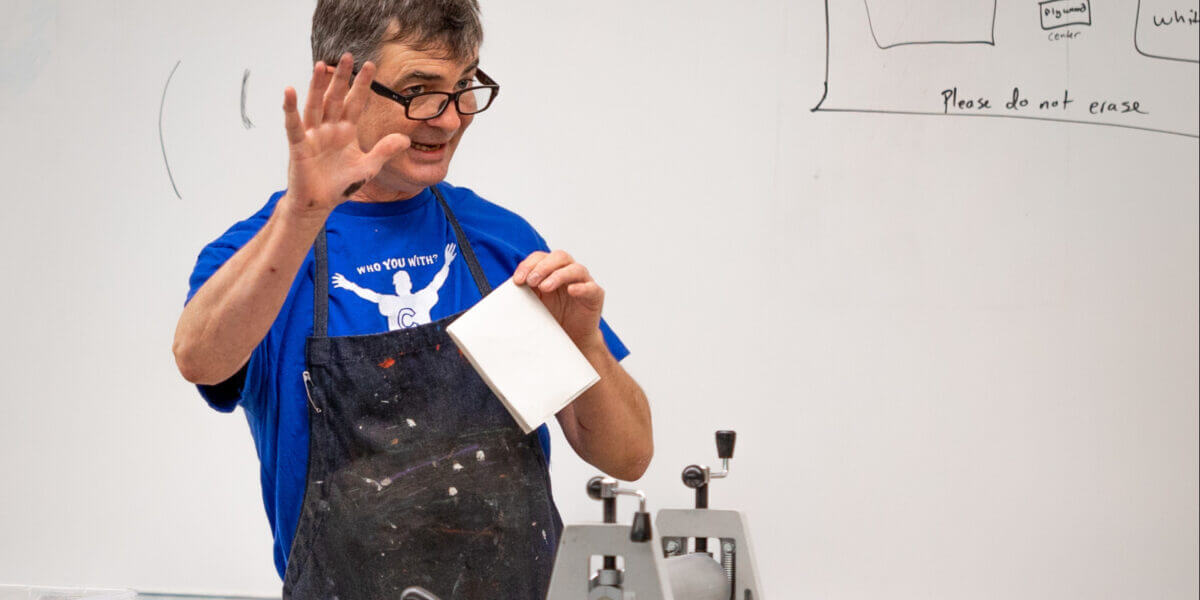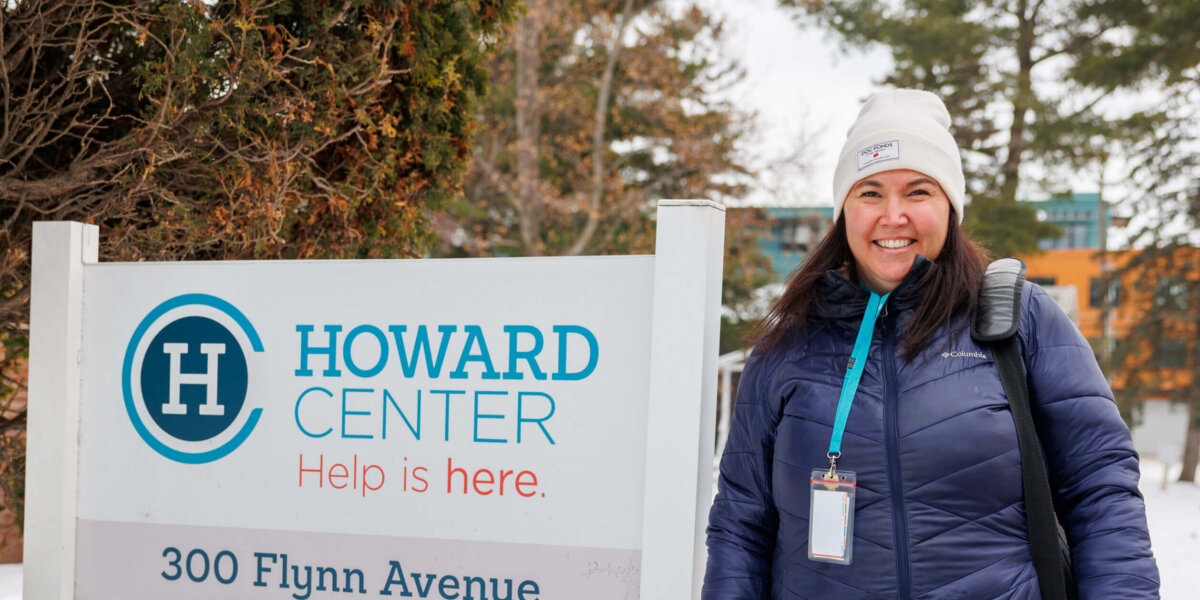In the spring of 1917, a young Burlington man named George Sheehan was drafted into WWI, along with more than 1,400 others from the Queen City. The City was divided, in that time, between affluent families in the “hill section,” many of whom were college-educated citizens who would go on to become officers in the Army, and the working-class immigrant communities in surrounding neighborhoods.
George Sheehan came from a working-class Irish family, and was prone to getting into trouble. He was arrested for petty crimes, including chicken stealing and drunken quarreling. He was a “rough-around-the-edges character,” as historian Michael Carter described him, who was working odd jobs when the draft was instituted. As Carter put it, “when he goes to register for the draft, thinks ‘I’ve got nothing to lose…let’s see what the Army has in store for me.’”
George is just one of the many Burlingtonians whose stories were featured in a talk by Carter given last week at CCV-Winooski. “The Lives, Service, and Sacrifice of Burlington, Vermonters during WWI” was borne from the thesis Carter prepared for his master’s degree in history at UVM. “I’m interested in how people lived in the past,” he shared. “It’s as simple as that.”
From a young age, Carter was fascinated by war, and spent years doing his own research about WWI before applying that knowledge to his UVM degree. At Thursday’s talk, he hoped to share this enthusiasm. “I think that seeing research that people have done, seeing people that are interested very intensely in something—and hopefully it’s infections—can be inspirational…if I can inspire folks to search and research on their own, or even just tell stories that they’ve never heard before and just share something that’s really fascinating to me, that’s really special.”
It was also a powerful way to recognize Veterans Day. “A lot of American history has been forged on the battlefield, for better or for worse,” said Carter, “and recognizing the sacrifices and the history of the people that came before us I think is important, and knowing the human element is important too because that personalizes it and makes us less apt to rashly think that war will be the answer to every problem. It should only ever be a last resort and there is a real human cost and toll to battle, as veterans know best of all. And so as a tribute to them, I think it’s important to discuss that on Veterans Day.”
Carter, who grew up in Burlington, infused a special affinity for the City into his lecture. He told the stories of five Vermonters who served in the War, sharing images of them in uniform, images of their draft cards, and images from the war. He also layered in imagery of Burlington homes, still standing, where a few of the soldiers spent their childhoods. He shared hundred-year-old photos of the UVM campus, Church Street, and other Burlington landmarks. Upon recognizing the name of the photographer scribbled into the bottom left corner of one image, a veteran in the audience remarked, “he took my graduation photo!”
CCV has a proud history of serving veterans and military-connected students, offering specialized resources for active military members and veterans who are transitioning to civilian life. More than 400 students attend CCV each semester, and they work closely with staff to navigate higher education, access veteran benefits, and connect with other veteran and military community members. Each year on Veterans Day, the College recognizes these students, as well as the larger community of veterans in Vermont, by hosting or participating in special events.
Carter’s talk was a welcome gathering for the dozens of CCV staff, students, faculty, and community members who came out Thursday evening to learn more about WWI and those who served in it. As the talk came to a close, Carter shared a story about a recent trip to Europe, where he visited an American cemetery in the French countryside where thousands of U.S. soldiers are laid to rest. Among them was the grave of George Sheehan, the scrappy young man from an Irish family in Burlington. “This was very powerful to me, because from doing this research and finding out about these characters, to be there and be present to this Burlington man in this little cemetery in France was a pretty powerful moment,” said Carter. “It felt important to me, while I had the opportunity, to just be able to be there.”






